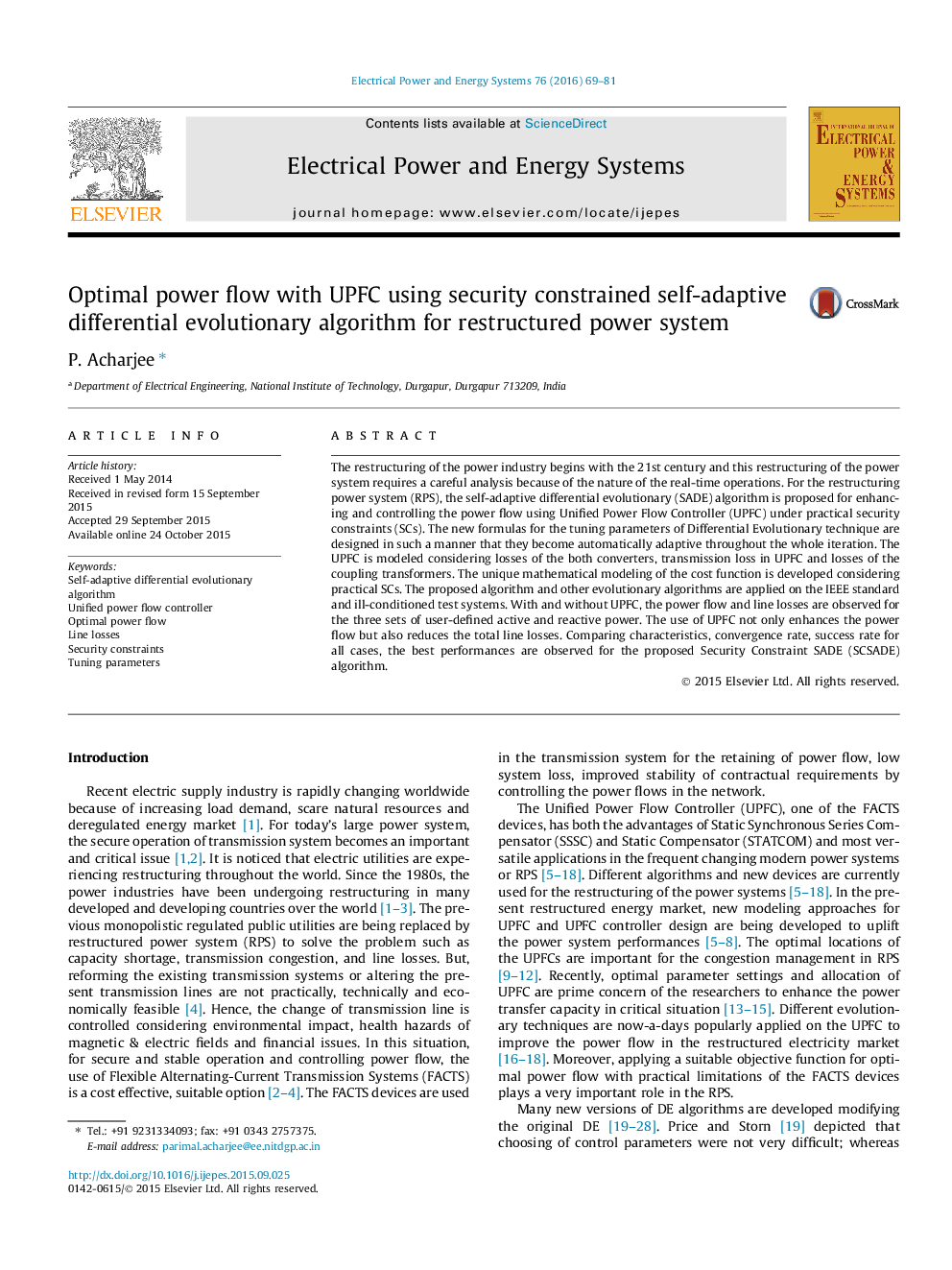| Article ID | Journal | Published Year | Pages | File Type |
|---|---|---|---|---|
| 399355 | International Journal of Electrical Power & Energy Systems | 2016 | 13 Pages |
•Modeling of UPFC considering losses in UPFC.•New and unique objective function.•Innovative adaptive tuning parameters of SCSADE algorithm.•Enhance & control of power flow and reduction of line losses using UPFC under SCs.•From results, the best performances are observed for the SCSADE algorithm.
The restructuring of the power industry begins with the 21st century and this restructuring of the power system requires a careful analysis because of the nature of the real-time operations. For the restructuring power system (RPS), the self-adaptive differential evolutionary (SADE) algorithm is proposed for enhancing and controlling the power flow using Unified Power Flow Controller (UPFC) under practical security constraints (SCs). The new formulas for the tuning parameters of Differential Evolutionary technique are designed in such a manner that they become automatically adaptive throughout the whole iteration. The UPFC is modeled considering losses of the both converters, transmission loss in UPFC and losses of the coupling transformers. The unique mathematical modeling of the cost function is developed considering practical SCs. The proposed algorithm and other evolutionary algorithms are applied on the IEEE standard and ill-conditioned test systems. With and without UPFC, the power flow and line losses are observed for the three sets of user-defined active and reactive power. The use of UPFC not only enhances the power flow but also reduces the total line losses. Comparing characteristics, convergence rate, success rate for all cases, the best performances are observed for the proposed Security Constraint SADE (SCSADE) algorithm.
Graphical abstractFigure optionsDownload full-size imageDownload as PowerPoint slide
